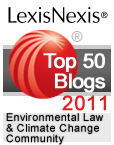Annals of the Obscure--Accounting Rule Changes May Adversely Impact Energy Efficiency and Renewable Energy
I have tried to make simple and clear many complex legal topics before, including class action law suits and IRS tax-free bonds, but never have I faced this great a challenge.
Apparently, the Financial Accounting Standards Board (FASB) and the International Accounting Standards Board (IASB), which are in charge of setting new accounting standards for companies, have set in motion a rulemaking process which would require companies to list leases as assets and liabilities on their books. These leases would include Power Purchase Agreements, Sale-Leasebacks of renewable energy installations and ESCO contracts.
By putting these transactions "on the books," it has a variety of implications, including increasing the debt ratio of many companies, and increasing the disclosure and transaction costs associated with those efforts. These implications may mean that companies are less willing to do renewable energy and energy efficiency transactions, and ESCOs and other companies have a harder time benefitting from the transactions.
The folks over at the National Renewable Energy Laboratory have done a detailed analysis of the rule changes here and Forbes had a more user friendly (if less detailed) piece here.

 Shari focuses on energy, environmental and building code policy, representing international companies, non-profits and trade associations in their policy and communications campaigns
Shari focuses on energy, environmental and building code policy, representing international companies, non-profits and trade associations in their policy and communications campaigns

